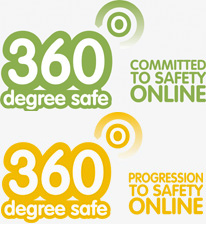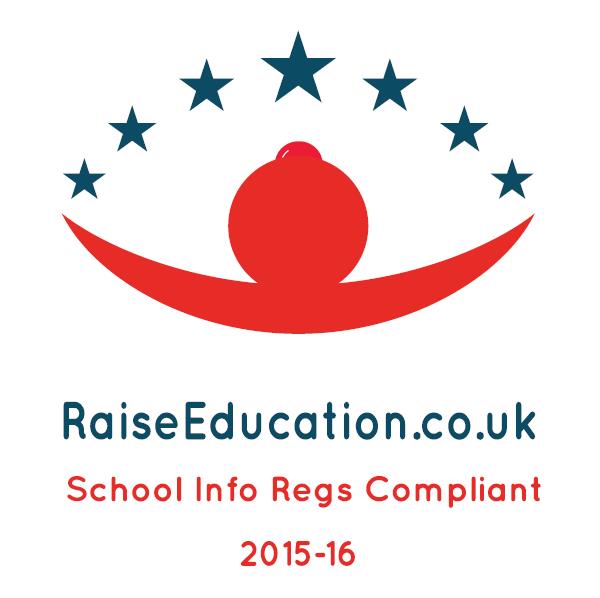Positive Behaviour Management Policy
Positive Behaviour Management Policy
Schools Mission Statement
Saint Joseph’s RC School together with its faith community will endeavour to inspire the gospel values of faith, hope, love, peace, justice and truth by:
- Ensuring that each child will develop their full potential, spiritually, intellectually, morally, emotionally, physically and socially in a caring, loving and supportive environment.
- Regular monitoring and evaluation of each child’s progress.
- Building strong relationships between school, children, parents and the parish community and neighbourhood to help prepare them to live harmoniously and with equality of opportunity.
Staff must be committed to supporting the Catholic ethos of the school and to helping the children towards an understanding of worship. Staff will share their gifts in the fulfilment of these aims for the benefit of the school community and share responsibility for the well being and discipline of all children. We place great importance on a high standard of pastoral care and aim to provide an environment they can work and play free from unnecessary anxiety. We promote and expect excellent standards of behaviour with children showing respect, manners and consideration to others.
See also related policies: Curriculum, Assessment, Equal Opportunities, Race Equality, SEN, Early Years Foundation Stage, Teaching and Learning
OUR EXPECTATIONS
At KS1 Golden Rules are followed. These are:
- To be allowed to work (in peace)
- To be allowed to play with their friends
- To feel safe
- To be dealt with kindly
- To be listened to
- To help make their classroom safety rules
In order for these rights to be met, the children agreed that teaching staff must also have basic rights. These are as follows:
- To be able to teach without interruption
- To have ‘quiet’ when explaining things
- To stay in their places if told to
- To put their hand up and ask politely
- To look and listen when the teacher is talking
- To use quiet working voices in the classroom
In KS2 the rules are:
- Follow in God’s footsteps and be a positive role model
- Have respect for other people and their property
- Walk sensibly up and down the stairs
- Honesty, manners, truthfulness are priceless gifts we can share with everybody
- Keep your arms, feet and nasty words to yourself
All children are expected to follow the firm but kind discipline in the school, they are treated in a firm and consistent manner. When standards fall below those expected the child concerned is disciplined by the staff member concerned. This may result in a verbal warning, loss of privileges, ‘Reflection’ held at lunchtime for KS2 and ‘thinking time’ for KS1 or for more serious incidents referred to the SLT.
In other words, we ALL need to work together to meet these rights and expectations.
KEY PRINCIPLES
Secure attachments, positive behaviour management and good inter-personal relationships support community cohesion and create an environment in which individuals can flourish.
We are very conscious that difficult or challenging behaviour may be an indication that a child has worries and concerns that they are unable to express in words and that these may be preventing them from learning.
Having consulted with all stakeholders, we believe that self-directed behaviour is the goal of all behaviour management. All children need to have self-confidence and self-control in order to operate effectively in a range of situations and with a variety of people. We believe this is a desirable quality both in school and throughout their future lives.
Our approach to understanding and managing behaviour should show understanding, compassion, forgiveness and respect.
In school children need a clear set of rules and boundaries within which they can operate. They need to be praised for keeping the rules and they need to understand that sanctions will be imposed if the rules are broken. Thus we have a set of ‘Golden Rules’ and ‘Golden Books’ which we use to reward those who keep the rules.
Some families may feel they need additional support to provide the nurture and security that their children need. We are committed to working with our parents/carers to meet this need.
AIMS
We aim to help children to:
- Develop emotional health
- Build upon those positive social skills of sensitivity, politeness, tolerance and consideration that have been developed at home
- Express their worries and concerns appropriately
- Recognise and display behaviour, which is acceptable and appropriate in a variety of situations
- Value and respect others regardless of differences in opinion, ability, gender, race, religion, colour, culture and need
- Think about the feelings of all members of our school community
- Be responsible for their actions and think about the consequences of their behaviour on others
- Learn positive approaches to dealing with conflict
- Feel safe, secure and happy in a calm, caring and purposeful atmosphere for learning.
- Work collaboratively as part of a group
- Take pride in their work; enjoy their success and that of others, thus maintaining self-esteem
- Respect themselves and their environment
We aim to promote this by:
Helping children to learn to trust, make relationships and have a reduced risk of anxiety and depression by providing them with
- Security, affection and unconditional regard
- Consistent reliable care
- Routine and predictability
- Operating a system of Golden Rules, Golden Assembly and using the Golden Book to reward those who keep the rules.
- Regularly appropriately praising and rewarding good behaviour.
- Using proximity praise and looking for the ‘good’ to motivate others.
- Good classroom management and organisation.
- Good timekeeping and accessible equipment.
- Providing a clean, orderly and stimulating environment.
- Exploring behaviour issues so there are opportunities to:
- Develop good relationships with their peers
- Talk about feelings
- Develop listening skills
- Discuss and reflect on a range of scenarios
- Be introduced to the concept of resolving conflicts
- Starting each new school year with a class discussion about Golden Rules and Safety/Classroom Rules so that everyone understands what is acceptable behaviour. Rules are framed positively.
- Encouraging children to work collaboratively and to make different contributions in a variety of different roles and groupings.
- Using our Learning Mentors to give the children the time they need to talk over any perceived problems.
- Where necessary, we will use outside agencies to access further resources e.g. art therapy, CAMHS
- Continuing to develop and foster an effective partnership between home and school
- Providing parenting advice for families who request this additional support.
- All staff demonstrating a high standard of conduct – recognising and accepting the need to ‘lead by example’ in the way they listen to, treat and speak to children, and in the way they are seen to treat and speak to each other. We are firm believers that we criticise the act, not the child.
- The problem is the problem, not the child, so we provide the skills for change.
Inclusion
Our positive approach to behaviour management is designed to support all pupils and create an environment in which they can flourish. Pupils with learning difficulties and disabilities will receive all the help they need to develop their self-confidence and manage their behaviour.
On a rolling programme staff have received training to support pupils who exhibit challenging behaviour.
The Golden Rules
Every academic year the school negotiates the Golden rules that the children agree to. These are used to reinforce good behaviour throughout the school day.
Golden Assembly
Is celebrated every Friday children’s work and efforts are recognised and celebrated through certificates and the Golden Book. The names of children entered into the Golden Book are read out in Golden Assembly.
Names are put in the Golden Book by the class teacher depending on their actions such as good work, good behaviour etc. In KS2 other members of staff can award golden or lottery tickets to any child for good behaviour relating to an agreed target, for example; safe play, friendship, kindness. These children’s names will be entered in to the Golden Book for their class and read out at assembly. Lottery tickets are picked at assembly monthly and there is a prize given.
At KS1 two children from each class may also be awarded certificates by their teacher for outstanding work or behaviour and one child (usually) will show their good work to the school. This develops at KS2 and children show their work to the Head of School and if they are entered into the Golden Book more than three times in a during a half term a special reward is organised by the Head of School.
Classes also have their own reward systems which are negotiated each year with their class teachers. Support staff are also encouraged to reward those who always keep to the rules, are polite and helpful.
Playground Behaviour
At KS1 through assemblies the children are introduced to, or reminded about the rules for positive playground behaviour. These are:
- Look after each other
- Playtime is fun time
- No running in the quiet area
The 5 Skills for Learning:
- Good listening
- Good looking
- Good speaking
- Good thinking
- Good sitting
In the classroom rather than giving attention for poor behaviour, staff reinforce the desired behaviour by using proximity praise and noticing the good, constantly using:
- Show me what we need for listening skills
- Show me what we need for looking skills
- Show me what we need for speaking skills
- Show me what we need for thinking skills
- How can you show me you are concentrating?
Or they boost self esteem with:
- I/We liked the way you…
- You have great … skills
- Thank you for your great … skills
- I/We really like the way you are so …
- Well done for … so well today
- I noticed your great … skills today
- Thank you for trying so hard to improve your …skills
Language for dealing with Problems
There are occasions when poor behaviour needs to be addressed, for example, when a child is regularly affecting the learning of others in the class, but this is always done with sensitivity.
Staff use the language of correction with pupils.
- Silent signal
- Assertive ‘I’
- Rule reminder
- Future focus
- Choice direction
- Active listening
- Partial agreement
- Tactical ignoring
- Distract divert
- Dramatic pause
In PSHE, Circle time and school council pupils are introduced to problem solving language and scenarios and they can use this approach both to ask for help and to resolve problems for themselves.
- I need help because…
- Yes that would help, thank you
At Playtime and Lunchtime
- Staff will praise helpful and considerate behaviour
- Children are encouraged to play games. The older children learn games to share with younger children
- At lunchtime play equipment will be available. Games are led by members of staff daily
- Children are encouraged to play with others who wait at the Friendship Stop or sit on the Friendship bench.
- Older children are playground buddies and act as good role models
When things go wrong
Staff on duty in the playground or in the classrooms, may use the following strategies:
- Begin by praising a nearby child who is behaving well.
- Give a verbal reminder/spoken warning
- If in the playground ask the child to walk around with them until the behaviour has calmed, changed and/or the child is ready to play
- Be asked to stand against the wall (Time Out 5 minutes at KS1 and KS2) and asked to reflect upon what to do to make things better
- If a child physically hurts someone they will automatically stand out
- Children will not be reprimanded by several different members of staff for the same incident
- The children can have ‘Reflection’/Thinking Time
When things go wrong in the classroom
Staff will use the following approaches:
- Praise those who are demonstrating that they are able to use the 5 Skills for Learning, specifically identifying the good behaviour they wish to reinforce
- Apply the Golden book strategies
- Loss of privileged time (i.e. official break times) may be necessary to complete work or to reinforce messages about acceptable behaviour
- The child is separated from distraction and behaviour documented in the class behaviour book
- Disruptive behaviour in class leads the child to being sent to the parallel class for a cooling off period and the incident is documented in the class behaviour book
- Reflection/Thinking Time – a child loses time at lunchtime and takes part in a conflict resolution session supervised by a teacher. Here the child apologises for his/her inappropriate behaviour, completes a ‘Let’s Solve the problem Together’ sheet and writes a sorry letter in KS2 and in KS1 a ‘Reflection/Thinking Time’ sheet is used.
- If sent to the parallel group three times over half a term the child is sent to the Executive Headteacher/Head of School who will record the reasons for the incidents
If the unwanted behaviour continues parents are invited to attend a meeting with the Executive Headteacher/Head of School and class teacher where written targets will be agreed by all parties and set in the form of a progress report. An agreement to work cooperatively towards achievable targets will be signed by all present. A review date will be set during the meeting. The progress report will be signed at the end of each class session and parents are expected to discuss the report with their child if the unwanted behaviour continues.
The next steps
In the case of persistent unacceptable behaviour, or behaviour that results in harm to another person, the child will be referred to the Learning Mentor/Deputy Headteacher/Head of School/Executive Headteacher as appropriate. A member of staff may then be allocated to develop a behavioural programme addressing issues relevant to the individual child. The school may also have reason to involve outside agencies with agreement of the family, for example, the Educational Psychologist, Early Help Team, CAMHS, Summerhouse PRU.
We hope not to move to the following steps, but parents need to be aware that exclusion is an option if:
- There are repeated serious breaches of the school behaviour policy
- Allowing the child to stay in school would seriously harm his/her welfare or learning and that of others in the school
- There are acts of vandalism
The exclusion process would be used for two main purposes:
- To give a clear warning to the child and their family that the behaviour is unacceptable and must change if the child is to remain in school
- To allow a cooling off period
The school would follow current diocesan guide lines.
Definitions of persistent unacceptable behaviour or behaviour that results in harm to another person(s):, biting, swearing, foul language, offensive gestures, physical violence, vandalism, blatant disobedience or defiance, bullying, incidents of racism.
School sanctions can be by-passed if incidents of this nature occur and the Executive Headteacher reserves the right to pass over the sanctions outlined above if it is deemed necessary. This will be on very rare occasion.
HOME SCHOOL PARTNERSHIP
The behaviour policy will have the greatest impact when home and school work together.
This policy is available on our web site. Paper copies can be provided on request. Parents receive an introduction to our behaviour management approach at induction meetings.
Further guidance is available on request the school. If behaviour is giving cause for concern parents will be informed, usually by the class teacher. Staff are asked to inform the Executive Headteacher/Head of School if they speak to parents so that she is fully aware of any concerns should parents wish to discuss the matter further. Incidents of a serious nature and ongoing issues will be dealt with by the Executive Headteacher/Head of School.
BULLYING
We aim to avoid bullying by careful adherence to our behaviour policy. We will not hesitate to investigate if anyone believes that bullying is taking place. Our definition of bullying is any form of aggression, physical or verbal. It is repeated behaviour with the bully, or group of bullies, intentionally setting out to cause distress to another child or group of children.
At St Joseph’s we believe bullying to be any behaviour, which denies others respect. This could include racial discrimination, general racism, sexism, abuse by adults or children, e-bullying, homophobic bullying, or any form of discrimination based on someone’s appearance, behaviour or special education needs. (See also our policies on Equal Opportunities and Racial Harassment.)
Bullying can be both physical and verbal in nature, for example, name-calling, teasing and taunting, which are emotionally bruising. Excluding targeted individuals can also be bullying.
The school actively seeks to encourage a ‘telling’ atmosphere. Bullying will not be tolerated in any form, and all incidents will be taken very seriously.
At school we will:
- Investigate all incidents thoroughly
- Give time and privacy to resolve a problem immediately it arises
- Report the incident to the Learning Mentor/Deputy Headteacher/Executive Headteacher/Head of School who will:
- Ensure that bullies and victims are interviewed separately
- Obtain witness information
- Keep a written record of the incidents, investigations and outcomes
- Inform the staff about the incident
- Ensure that appropriate action is taken to prevent further incidents
Actions taken may include:
- Imposition of sanctions
- Obtaining an apology
- Use of ‘Let’s solve the problem together’ – see attached. (Only to be used if the victim is comfortable with this approach)
- Informing parents of both bullying and bullied
- Providing mentor support for both parties involved
We believe that bullying will not be eradicated if the behaviour of bullies is not modified. Efforts will be made to identify why a child has bullied: support can then be offered to the bully to prevent re-occurrence.
The monitoring process will continue as long as is thought necessary. Parents and carers will be involved in the process.
It is essential that no child is placed in a potentially humiliating situation, but bullies will be expected to take part in an honest and open appraisal of their actions and behaviour. It is the behaviour that will be criticised not the child.
The ethos of the school provides a supportive framework in which every individual is highly valued, and knows it.



















